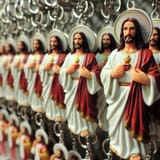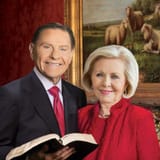Anonymous
ID: S+vokJ8G
7/24/2025, 11:00:14 AM No.511210346
Religion functions as humanity's first luxury belief system—a form of cognitive indulgence that became possible only when agricultural surplus freed societies from the immediate demands of survival. Before farming, human mental resources were entirely consumed by practical concerns: tracking game, reading weather patterns, identifying food sources, and navigating social dynamics necessary for group survival. The emergence of settled agriculture created unprecedented cognitive leisure time, allowing humans to engage in metaphysical speculation about invisible agents and cosmic purpose for the first time in human history. Religion represents what happens when societies become wealthy enough to support widespread philosophical contemplation but not yet sophisticated enough to pursue rigorous empirical methods.
Contemporary religious belief perfectly exemplifies luxury thinking—elaborate theological systems maintained by people insulated from genuine survival pressures. Modern believers can spend countless hours debating doctrinal minutiae, attending lengthy services, and constructing complex theodicies precisely because they live in societies that have solved basic material problems. Religious adherence correlates inversely with immediate hardship: when people face genuine crisis, their cognitive resources shift rapidly toward practical problem-solving rather than supernatural speculation. The global pattern is unmistakable—the most religiously devout societies tend to hover at the economic threshold where basic needs are met but educational and material security remain limited. Religion thrives in this narrow band where people have enough surplus to engage in metaphysical thinking but insufficient intellectual development to recognize such thinking as cognitive luxury rather than profound insight.
Contemporary religious belief perfectly exemplifies luxury thinking—elaborate theological systems maintained by people insulated from genuine survival pressures. Modern believers can spend countless hours debating doctrinal minutiae, attending lengthy services, and constructing complex theodicies precisely because they live in societies that have solved basic material problems. Religious adherence correlates inversely with immediate hardship: when people face genuine crisis, their cognitive resources shift rapidly toward practical problem-solving rather than supernatural speculation. The global pattern is unmistakable—the most religiously devout societies tend to hover at the economic threshold where basic needs are met but educational and material security remain limited. Religion thrives in this narrow band where people have enough surplus to engage in metaphysical thinking but insufficient intellectual development to recognize such thinking as cognitive luxury rather than profound insight.


